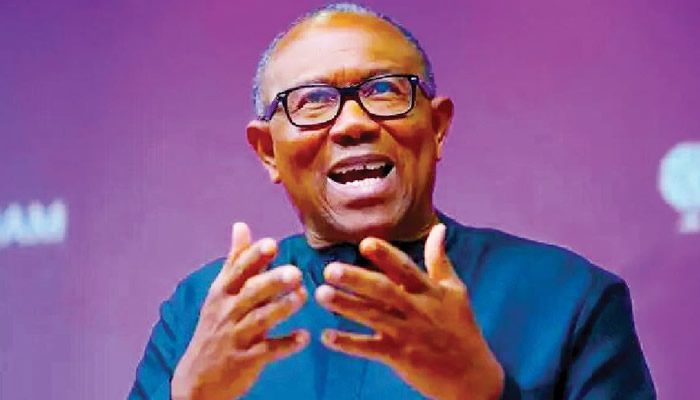The Labour Party, under the leadership of Julius Abure, has expressed enthusiasm about the prospect of Peter Obi, their 2023 presidential candidate, running again on their platform in the 2027 elections. This follows Obi’s recent public declaration reiterating his commitment to the Labour Party and his intention to pursue his presidential ambitions under its banner. While internal factions and leadership disputes continue to plague the party, Obi’s declaration has injected a sense of optimism and renewed focus on the upcoming Anambra state governorship election, where Obi’s influence is expected to play a significant role. The party’s national publicity secretary emphasized the shared interest of both Obi and the Labour Party in fostering positive change in Nigeria, highlighting Obi’s strong performance in the 2023 elections despite systemic challenges.
Despite the ongoing leadership tussle within the Labour Party, communication channels between Obi and Abure remain open. While formal discussions have yet to take place, informal talks continue, suggesting a potential for reconciliation and collaborative efforts in the future. The party sees Obi’s continued commitment as a mutually beneficial situation, and both sides are expected to meet and resolve their differences before the 2027 elections. Obi’s influence in his home state of Anambra is particularly important for the upcoming governorship elections, and his involvement is anticipated to be crucial for the Labour Party’s success.
Obi’s declaration has reverberated through the political landscape, particularly within the opposition coalition led by Atiku Abubakar and Nasir El-Rufai. Key figures within the coalition have expressed surprise at Obi’s steadfast commitment to the Labour Party, highlighting the unexpected nature of his announcement. This development underscores the evolving dynamics within the opposition and the potential impact of Obi’s continued presence on the political scene.
In a direct address to his supporters, Obi confirmed his unwavering commitment to the Labour Party and his intention to run for president in 2027. He attributed the ongoing internal conflicts within political parties, including the Labour Party and the PDP, to deliberate actions by the government aimed at destabilizing the opposition. Obi highlighted past instances where government intervention was necessary to resolve party disputes and stressed the importance of a strong opposition for a functioning democracy. He vowed to address these issues if elected, emphasizing his commitment to fostering a healthy political environment.
Obi urged Nigerians to actively participate in the electoral process and ensure their votes are counted, emphasizing that the responsibility ultimately lies with the electorate, even with party agents present. He encouraged the youth and the general public to remain steadfast in their pursuit of positive change, acknowledging the resistance from those who benefit from the existing system. This call to action underscores Obi’s belief in the power of the people to effect meaningful change and his dedication to empowering citizens to exercise their democratic rights.
Furthermore, Obi advocated for the introduction of a retirement age for politicians seeking public office. He pointed out that he would be 65 by the 2027 elections and expressed his desire not to contest elections in his seventies. This stance reflects his view on the importance of generational change in politics and the need for fresh perspectives in leadership. His commitment to the Labour Party, coupled with his call for systemic reforms and his personal stance on age limits for political office, paints a picture of a politician committed to long-term change and sustainable political practices.














